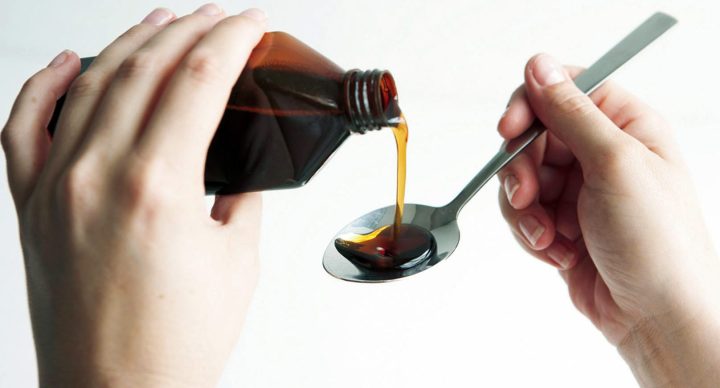CONSUMER ALERT
Benylin Paediatric cough syrup recalled in six countries due to toxic compound

Two batches of Benylin Paediatric cough syrup, manufactured by Johnson & Johnson before it spun off its consumer health division to Kenvue, have been recalled in South Africa, Nigeria, Kenya, Eswatini, Rwanda and Tanzania.
Days after Johnson & Johnson (J&J) attempted to distance itself from another high-profile scandal linked to its products, the South African Health Products Regulatory Authority (Sahpra) issued a recall of two batches of Benylin Paediatric cough syrup due to contamination of a toxic compound better known in the production of coolants for engines, wallpaper strippers, inks, and other industrial products.
Such products are required to be clearly labelled “harmful, if swallowed”.
Diethylene glycol (DEG) is toxic to humans when consumed and can be fatal. Consumption can result in abdominal pain, vomiting, diarrhoea and acute kidney injury, which may lead to death.
On Thursday, Bloomberg reported that Nigeria’s health ministry had recalled a batch of J&J’s Benylin Paediatric syrup, which is also used to treat hay fever and other allergic conditions in children under the age of 12, because it contained an “unacceptable high level of diethylene glycol and was found to cause acute oral toxicity in laboratory animals”, the Food and Drug Administration and Control said in a public alert.
The affected batches – described as “substandard” – were produced in South Africa in 2021 and were set to expire this month, the Nigerian regulator said.
On Saturday, 13 April, five more countries — including South Africa — recalled the cough syrup, which was produced by J&J.
While the multinational pharmaceutical company no longer produces Benylin, the affected batches were in fact manufactured by it in 2021.
When contacted for comment, J&J spokesperson Clare Boyle insisted that “on the record”, Benylin Paediatric was not a J&J product. “It is a product sold by Kenvue.”
When challenged about the affected batch — which was manufactured while J&J still owned the Benylin brand — Boyle failed to respond.
J&J also referred Bloomberg to Kenvue, the consumer health division it spun off last year.
Kenvue now owns the Band-Aid, Listerine and Neutrogena brands.
The spin-off company said in a statement that it takes this matter “very seriously”, and is acting with urgency to conduct a thorough safety and quality assessment.
Sahpra alerted the press after receiving a report from the Nigerian National Agency for Food and Drug Administration and Control about the detection of high levels of diethylene glycol in the batch of Benylin Paediatric syrup.
The agency said after engagements with Kenvue, and in the best interest of the public, it was “resolved that affected batches would immediately be recalled while an investigation is ongoing”.
“Sahpra, in collaboration with Kenvue, have identified the affected batch numbers as 329304 and 329303. These affected batches have been distributed to the following countries: South Africa, Eswatini, Rwanda, Kenya, Tanzania and Nigeria.”
It is not yet known what engagements Sahpra has had with J&J, which manufactured the affected batches.
Benylin Paediatric is a clear, bright red syrup with a raspberry flavour, used for the relief of cough and congestion related to allergic conditions.
“Sahpra wishes to inform the public not to panic as the matter is being handled with priority. Batch recalls are batch-specific and do not necessarily apply to other batches/similar products. The manufacturer is a Sahpra-licensed manufacturer and complies with good manufacturing practices. The public is reminded that the recall is limited to two batches and should not panic regarding the range of products bearing the same name.”
Sahpra has alerted healthcare professionals and the public to discontinue the use of the two batches, remove them from their inventory and return them.
Those who have consumed these affected products should consult their healthcare professional.
On 4 April, The New York Times reported that J&J had reached an $8.9-billion (R167-billion) settlement over its talcum powder case. The pharmaceutical group has been investigated in the US by more than 40 states, after thousands of lawsuits alleged it failed to warn customers about cancer risks. DM














 Become an Insider
Become an Insider
Can all the products be investigated, I have been using this medicine for all my kids, I doubt they changed the way they make it in 2021.